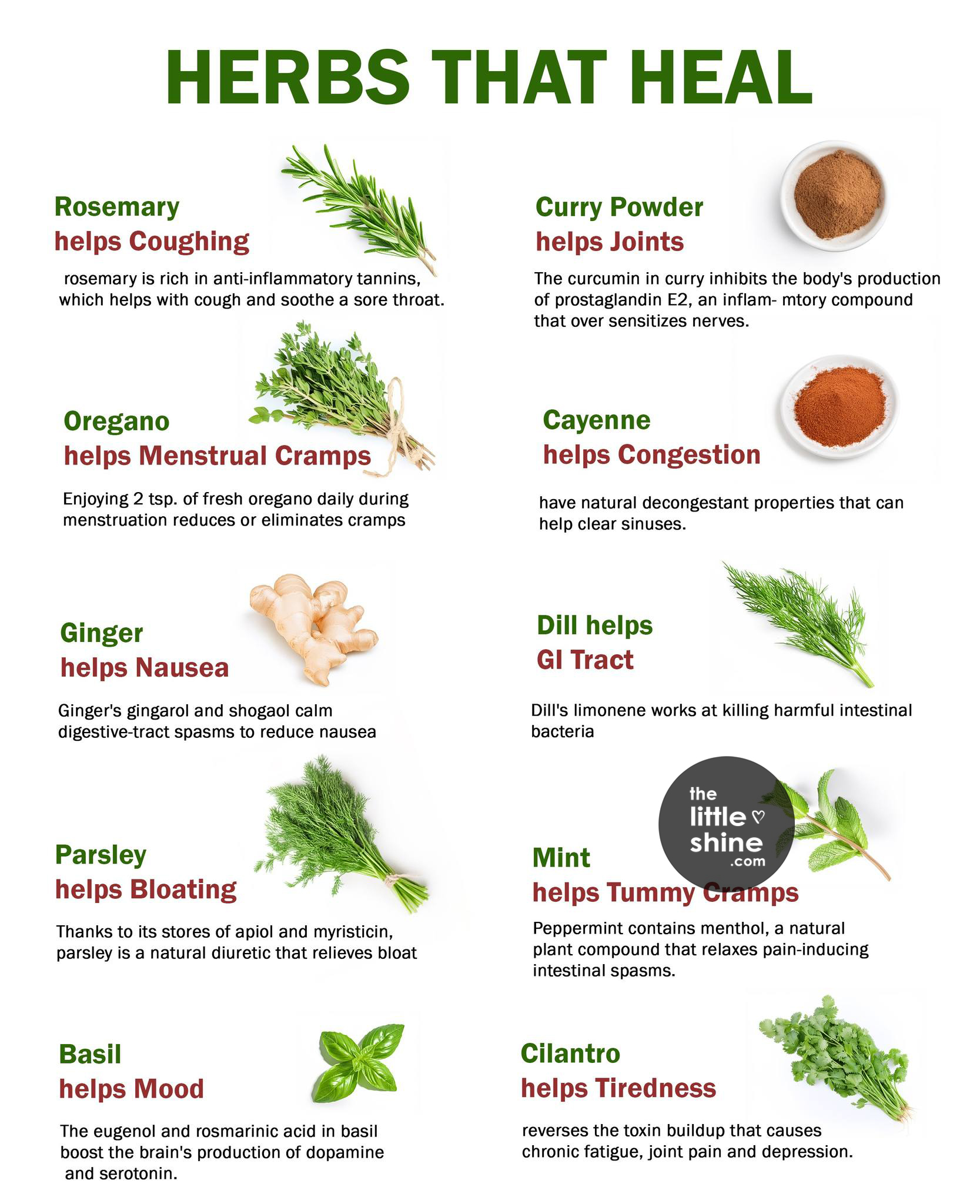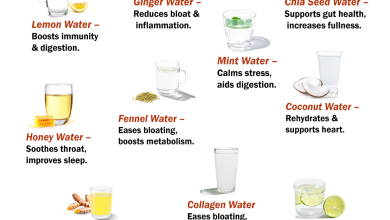16 Best Healing Herbs You Should Know About
From turmeric, to ginger, rosemary, parsley, oregano, ginkgo biloba and the list goes on, the number of herbs we have are plenty and what’s even more, are their healing remedies.
Herbs have natural powers to help cure all kinds of ailments. Each herb has powerful properties of healing a few or many ailments, but some have significantly powerful properties to heal sole ailments even more quicker than the others.

All you need to do is take the right herb for curing the right ailment. So, if you don’t know which herb to take for which problem or issue, check out this article for more information.
Best Healing Herbs You Should Know About
1. Ginkgo Biloba for Wheezing and Asthma
Ginkgo biloba can help improve the symptoms of asthma and can also help reduce the symptoms of other inflammatory respiratory diseases, because it has anti-inflammatory compounds that can reduce inflammation in the airways of the throat and can better lung capacity.
2. Rosemary for a Cough
The eucalyptol in this aromatic herb is study proven to loosen chest congestion, making phlegm easier to expel. Plus, rosemary is rich in anti-inflammatory tannins, which soothe a sore throat.
3. Curry Powder for Joint Pain
The curcumin in curry powder inhibits the body’s production of prostaglandin E2, an inflammatory compound that over sensitizes nerves. This blunts joint and muscle pain effectively.
4. Oregano for Menstrual Cramps
Enjoying 2 teaspoons of fresh oregano daily during menstruation reduces or eliminates cramps. Oregano contains thymol and carvacrol, that can relax the uterine muscles to prevent painful contractions.
5. Turmeric for Building Body Immunity
Turmeric contains a compound called curcumin that can help boost immune system health. It is also rich in antioxidants that can protect the body from and fight diseases. Turmeric also has anti-inflammatory properties.
6. Cayenne for Congestion
Cayenne contains capsaicin that deactivates substance P, a neurotransmitter linked to inflammation. The result is less sinus congestion and pressure.
7. Chamomile for Sleep
Chamomile contains apigenin, which is a flavonoid that is known to have sedative effects. Thus, it can help improve sleep quality, while also reducing anxiety and stress and calming down the body and mind.
8. Ginger for Nausea
Ginger contains gingerol and shogaol that can help calm the digestive tract spasms to reduce nausea better than motion-sickness drugs.
9. Mint for Stomach Cramps
Peppermint contains menthol, a natural plant compound that relaxes pain-inducing intestinal spasms. This reduces belly discomfort significantly.
10. Parsley for Bloating
Parsley is a natural diuretic that relieves bloat-inducing water retention by preventing salt from being reabsorbed into bodily tissue.
11. Ashwagandha for Male Sexual Health
Ashwagandha is a medicinal herb that may offer benefits in men, including boosting testosterone, improving sperm quality/count, reducing anxiety.
12. Dill for the Gastrointestinal Tract
Dill contains limonene that works as well as prescription antibiotics at killing harmful intestinal bacteria such as E. coli.
13. Basil for Mood Enhancement
The eugenol and rosmarinic acid in basil boost the brain’s production of dopamine and serotonin. It could help brighten one’s moods in as little as three days.
14. Ashwagandha for Stress and Anxiety
Ashwagandha can help significantly reduce the levels of cortisol in the body and this can help reduce stress and anxiety. It is an adaptogen that can help protect the body from stress.
15. Coriander for Tiredness
The carboxylic acid in coriander binds to heavy metals such as mercury in the blood and carries them out of the body, reverses the toxin buildup that causes chronic fatigue, joint pain and depression.
16. Parsley for Bloating
Parsley contains apiol and myristicin and is also a natural diuretic that relieves bloat-inducing water retention by preventing salt from being reabsorbed into bodily tissue.

